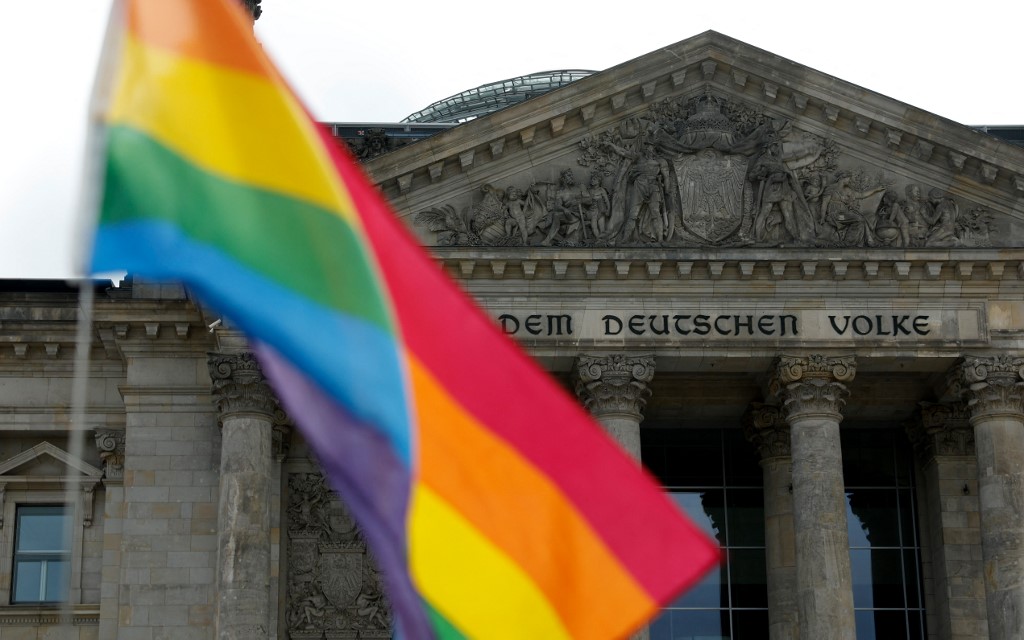
Germans Debate Date of Hoisting LGBTQ Flag Atop the Bundestag
Just days after the new German government took office, Bundestag President Julia Klöckner of the Christian Democratic Union (CDU) announced that in order to preserve neutrality in public buildings and administration, she would ban the rainbow flag from being flown atop the Bundestag on Christopher Street Day—Germany's term for the day of the Pride Parade. The decision sparked a fierce debate.
Klockner has not entirely ruled out the possibility of the rainbow flag being flown over the German Parliament, but stated that “the symbol of diversity and the fight against discrimination should only be displayed on May 17, the International Day Against Homophobia.”
She also banned the „Parliamentary Queer Network”—a group of LGBTQ employees in the Bundestag—from participating in the Pride Parade as a political group. She stated that members may only join the event as private individuals. The parliament president broke with previous tradition: her predecessor, Social Democrat Barbel Bas, had attended the parade in 2023 and 2024 and raised the flag over the building. Klockner’s decision, however, has not been popular. Politicians supporting the LGBTQ lobby criticized the move, and it has triggered heated political debate.
The Greens, the Left Party (Die Linke), and the Social Democratic Party (SPD) strongly condemned Klockner’s decision, arguing that attacks against sexual minorities are on the rise in Germany.
In 2025, 1,770 crimes tied to sexual orientation were reported—250 of them involved physical violence. That number is five times higher than in 2017.
In June, a dozen masked men attacked participants at a pro-diversity festival in Bad Freienwalde, a small town northeast of Berlin in Brandenburg. Experts say such events are increasingly targeted by neo-Nazi groups.
German Government Divided on LGBTQ Policy
Chancellor Friedrich Merz’s public support for Julia Klockner’s stance has only deepened the controversy. In a previous television interview, Merz stated that the Bundestag is not a “circus tent” over which “just any flag” can be flown.
His comments outraged LGBTQ organizations and also caused division within the government itself. The conservative-led Interior Ministry, headed by Alexander Dobrindt, issued a circular advising authorities to fly the rainbow flag on public buildings only once a year. However, several officials have already deviated from this guideline, and LGBTQ flags have appeared on many public buildings and offices.
Allemagne: une marche des fiertés LGBTQ+ á Berlin sur fond de tensions politiques https://t.co/dyJ3Ehxoyy pic.twitter.com/eRUmavDPh8
— GrandReportageRFI (@ReportageRFI) July 25, 2025
This includes the Ministry of Finance, led by Social Democratic Vice Chancellor Lars Klingbeil, as well as the Ministry of Defense. Each year on July 3, the Defense Ministry commemorates the repeal of a rule from 2000 that had barred homosexual soldiers from obtaining officer ranks and promotions.
The Bundesrat, Germany’s upper house of parliament, also announced it would raise the LGBTQ flag on Pride Day.
So far, several major German cities—including Hamburg, Cologne, Munich, and Berlin—have allowed the rainbow flag on official buildings. Over time, the symbol has not only come to represent LGBTQ rights but has also become a topic of broader cultural and political debate.
“We feel that all the progress we made in past decades is now at risk,”
said Alfonso Pantisano, Berlin’s Commissioner for Queer Issues.
Meanwhile, the right-wing AfD party—currently polling around 25%—has condemned the use of the flag on public buildings, calling it a symbol of a “political agenda.” In a parliamentary motion submitted in June, the AfD proposed that only the German national flag be flown on state buildings. In its justification, the party also rejected the display of the European Union flag, claiming it is not a symbol of national sovereignty.

